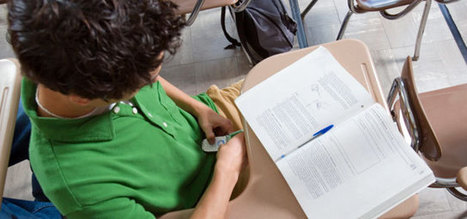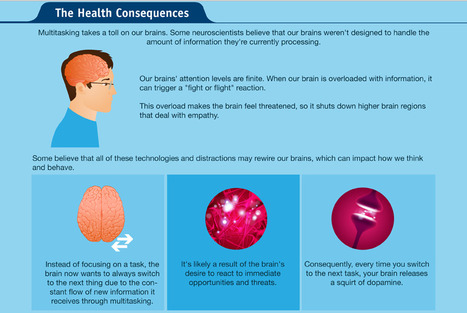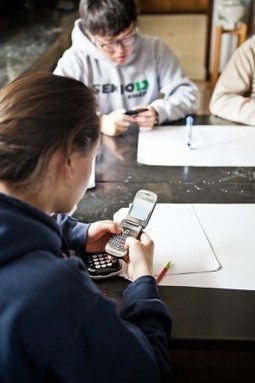"Some call today’s students “digital natives.” Others call them the “distracted generation.” Whichever term you prefer, it’s clear they’re both far more than labels: they capture the core conflict many of us involved in education — educators, parents, and even students — feel about the use of technology in the classroom."
Get Started for FREE
Sign up with Facebook Sign up with X
I don't have a Facebook or a X account
 Your new post is loading... Your new post is loading...
 Your new post is loading... Your new post is loading...
|

Eric Moss's curator insight,
June 29, 2015 10:36 AM
I found it extremely interesting looking at the symptoms of an experiment that was done, regarding giving up social media for 24 hours. Students felt phantom phone vibrations, reached for a phone that they didn’t have, and could not stop moving, all effects of not having access to social media for 1 day. I think this is a very serious problem that needs to be addressed. Maybe using social media leads to better employees by reducing stress and bringing about a better work ethic? We cannot just simply skip over this issue, as it seems to be one that will be prominent in years to come. If you are able to get through the workday/school day as a happy, hardworking employee/student, maybe we shouldn’t worry about things like Internet addiction until they become more severe? |









![Four Ways Technology Is Changing How People Learn [Infographic] | Eclectic Technology | Scoop.it](https://img.scoop.it/JCJ_XneGzBoYSXq6Ecco2Tl72eJkfbmt4t8yenImKBVvK0kTmF0xjctABnaLJIm9)



![How Social Media is Ruining Our Minds [Infographic] - Assisted Living Today | Eclectic Technology | Scoop.it](https://img.scoop.it/whtV8PiguxcDzjNVsZSddTl72eJkfbmt4t8yenImKBVvK0kTmF0xjctABnaLJIm9)





We have to evolve to use technology in our classrooms